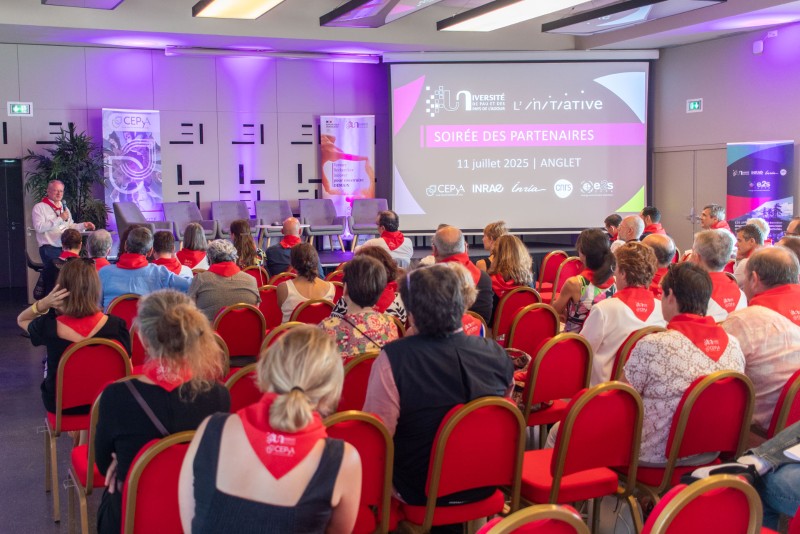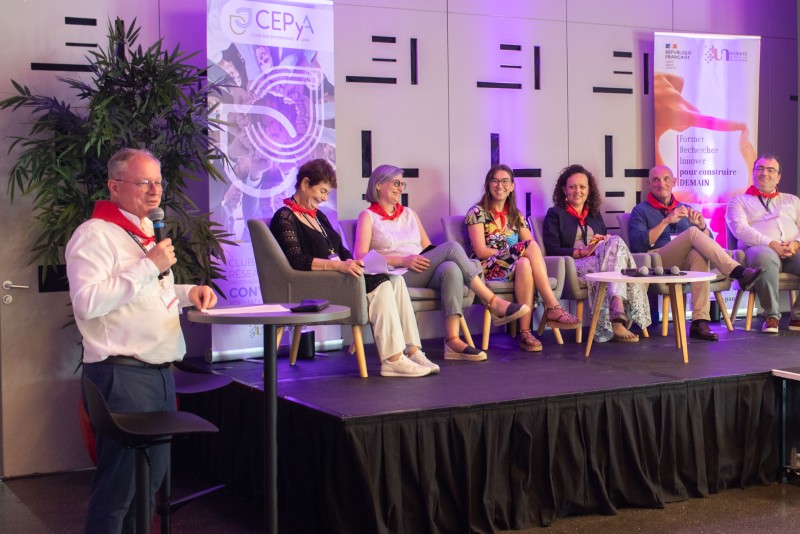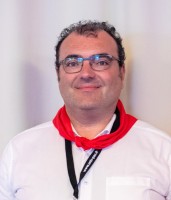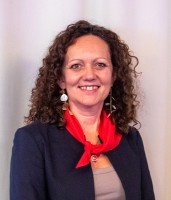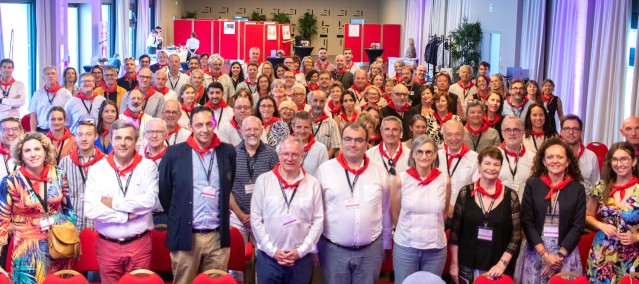
07 | 11 | 2025
UPPA 2025 Partners’ Party: Bringing Academics and Industry together for a Sustainable Future
The 6th annual partners’ evening of the University of Pau and Pays de l’Adour (UPPA) brought together around 100 people at the Espace de l’Océan in Anglet on July 11, 2025. It was organized in partnership with its business club CEPyA, whose mission is to connect economic players in the region with the university. After a round table discussion on the regional ecosystem, UPPA researchers, lecturers, and administrative staff had the opportunity to meet informally with their partners, including manufacturers, SMEs, and local authorities.
The evening also provided an opportunity to raise awareness of L’Initiative, an association of six French universities that have been awarded the I-SITE (Initiative Sciences, Innovation, Territoires, Économie) label of excellence – CY Cergy Paris University, Clermont Auvergne University, Gustave Eiffel University, University of Lille, Nantes University, University of Pau and Pays de l'Adour – with four university presidents in attendance.
The round table discussion, moderated by Laurent Bordes, President of the University of Pau and Pays de l'Adour, focused on the theme of “Creating ecosystems in our regions.” It featured:
- Carine Bernault, President of Nantes University and President of L'Initiative;
- Inès de Bort, UPPA researcher (LFCR Anglet) and start-up project leader;
- Laurent Gatineau, President of CY Cergy Paris University;
- Catherine Javaux, Vice President of Upstream R&D at TotalEnergies;
- Christophe Labes, Director of New Business at Arverne Group;
- Stéphanie Reynaud, Director of Research at CNRS UPPA (IPREM Pau), specialist in nanoplastics.
The discussions highlighted the importance of universities' regional roots, the need for businesses to access a pool of skills and talent, and the need for societal acceptance of innovations through better knowledge sharing.
With partners from not only the Pyrénées-Atlantiques and Landes regions, but also Charente and the Netherlands, this evening of rich exchanges underscored the need for cooperation among all stakeholders in the region to address the major contemporary challenges of decarbonization, global health, and reindustrialization.
“We cannot imagine a university that is isolated and inward-looking; that would not make sense in terms of our missions and how we conceive them. Through The Initiative, we want to show how much we need universities in local communities to address current challenges.”
Carine Bernault,
President of Nantes University and President of L'Initiative
“Contrary to what one might think, universities are not fossils. They are evolving very quickly. I-SITE universities are extremely effective in this regard, with remarkable capacity for innovation and adaptation, and they provide solutions for society.”
Laurent Gatineau,
President of CY Cergy Paris University
“An ecosystem is a network of interconnected players. These players, which may be companies, suppliers, institutions, or public or private operators, share the common goal of contributing to innovation and value creation. For ecosystems to thrive, they must adapt and demonstrate resilience.”
Laurent Bordes,
President of the University of Pau and Pays de l'Adour
“The territory is important to us because it allows us to get to know each other and therefore to build a long-term relationship. We complement each other, and each of us respects the other's skills and strong values.”
Catherine Javaux,
Vice President of Upstream R&D at TotalEnergies
“There is no separation—nor should there be—between the private and public spheres, between research and business. This is essential. We must work together systematically on fundamental research.”
Christophe Labes,
Director of New Business at Arverne Group
“We know that starting a business also means taking risks. Creating an ecosystem allows us to receive support from public and private organizations and partners, and to benefit from support programs to ensure that we have every chance of success.”
Inès de Bort,
chercheuse UPPA et porteuse de projet de start-up
“Science is crucial in countering misinformation. When faced with global challenges, no single discipline or country has the sole solution. Collegiality is therefore essential. We must work together toward a collective commitment to the common good.”
Stéphanie Reynaud,
Director of Research at CNRS/UPPA (IPREM Pau)
